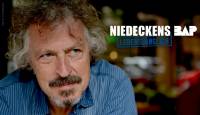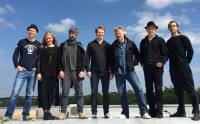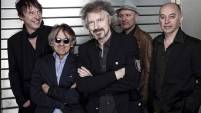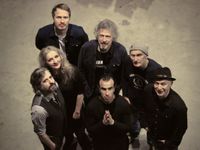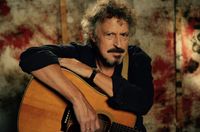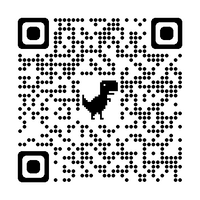BAP is a German Rock band from Cologne around front man Wolfgang Niedecken and one of the most successful German-speaking rock bands.
The dialect band performed under the name of Wolfgang Niedecken’s BAP until 1981, then as BAP until 2014. Of the 23 BAP albums, 19 reached the top 10 and twelve became number 1 in the charts. BAP thus equalized the Beatles existing record of 12 number 1 albums in the German album charts.
After the departure of the band members Jürgen Zöller and Helmut Krumminga, Niedecken announced in September 2014 that they would appear in changing formations under the name of Niedeckens BAP.
Foundation and band name
The group around the singer and songwriter Wolfgang Niedecken has existed since 1976. The band met at the beginning with a changing line-up to “rehearse a case of beer”. The first appearance took place in July 1977 in the Mariensaal in Cologne-Nippes with two acoustic guitars (Wolfgang Niedecken, Hans Heres) and percussion (Afro Bauermann). The first album, "Wolfgang Niedecken's BAP rocks andere Kölsche Leeder", was released in November 1979. The band at that time consisted of the Cologne occasional musician and art student Wolfgang Niedecken, Hans “Honçe” Heres, Wolfgang “Gröön” Klever, Manfred “Schmal” Boecker, Wolfgang “Wolli” Boecker and Bernd Odenthal. The second LP, "Affjetaut" followed in 1980, like the debut record under the name "Wolfgang Niedecken's BAP", since Niedecken had already made a name for himself as a solo artist with guitar and harmonica as "Bob Dylan der Südstadt" and as a painter; Both records were released on the Cologne independent label Eigelstein Musikproduktion.
The band name BAP originated from the nickname Niedeckens, who originally called his father that. This pronunciation of papa comes from the Unkeler Platt, where the Niedecken family comes from. Because it deviated from the Cologne “Papp”, “Bapp” became Wolfgang Niedecken's nickname. When the first gig was planned, which was to be advertised with a poster, a band name had to be found. Hans Heres suggested that the organizer take "BAPP". Since the band members agreed that “BAPP” - spelled with two “P” - would not have looked good on the kick drum, a “P” was simply deleted.
Style
The musical and content style of the BAP songs is largely shaped by Bob Dylan, The Kinks and The Rolling Stones. Bruce Springsteen, with whom Wolfgang Niedecken has a personal friendship, is also an important point of reference for BAP. The texts, also politically active as in Kristallnaach (1982), often deal with social or personal problems.
History
In 1979, under the initial band name Wolfgang Niedecken’s BAP, the first gigs outside of Cologne and the surrounding area took place. Among other things, BAP was present in national media. in December 1980 as part of the final broadcast of the WDR youth series Radiothek, which was broadcast live on the radio program WDR 2 and from which excerpts were later published on a bootleg.
In May 1982 BAP made the first professionally organized tour of Germany. The focus was on songs from the album "Für Usszeschnigge!", which was the first album on the new major label EMI-Electrola in 1981. For the change from Eigelstein Records to EMI, BAP had to take criticism in the local culture scene. "For Usszeschnigge!" reached number 1 in the German album charts.
Various appearances followed in the summer of 1982 as part of major events and television productions: Rockpop In Concert for ZDF in Dortmund's Westfalenhalle 1, demonstration against the retrofitting of NATO in June 1982 (June 10th) on the Bonn Rhine meadows, pre-program for The Rolling Stones in July 1982 in the Müngersdorfer Stadion in Cologne and as the first German band at a festival of the WDR-Rockpalast in August 1982 on the Loreley open-air stage.
After the release of their fourth album "Vun drinne noh drusse", the band was on the road for seven months between October 1982 and October 1983. In addition to Germany, concerts in Austria, Switzerland and the Benelux countries were on the program. A total of about 130 appearances were played. The tour ended with a concert in Cologne's Stollwerck. The community center, threatened by demolition, received the proceeds from this concert to finance its further work. In May 1983 BAP played at a festival in Schüttorf, Lower Saxony, in the opening act of Rod Stewart and in October 1983 at another large-scale demonstration against NATO retrofitting in Bonn's Hofgarten.
For January 1984 - after long negotiations with the state artist agency - a tour with 14 concerts in 13 cities in the German Democratic Republic (GDR) was planned. In the run-up to the tour, GDR television recorded an interview with Wolfgang Niedecken including two unplugged versions of BAP songs. The program was broadcast shortened, distorting the meaning. So Niedecken decided to present some political statements that were important to the band in a song of their own. It was titled Deshalv spill ’mer he and played for the first time at the last“ West concert ”before the planned GDR tour in Wolfsburg. When the band was already in Berlin at the Hotel Unter den Linden, on the eve of the first concert planned as part of the Rock for Peace event, there were violent disputes with the GDR side about this song. When the band refused to take it off the setlist, it came to a head. The tour was canceled before the first concert could be played on the soil of the GDR. In the GDR television broadcast of the “Rock for Peace” event in the Berlin Palace of the Republic, to which BAP was invited, the moderator stated that the band “is not under the symbol of the white dove on blue Reason “want to appear.
The tour for the album "Zwesche Salzjebäck un Bier" began in June 1984 with two concerts in the Archaeological Park in Xanten. They were recorded by ZDF and later broadcast in a summary. The tour lasted until February 1985 and, measured by the audience success, surpassed the tour of 1982/1983. In March 1986, the "Ahl Männer, aalglatt" tour began in Lohmar near Cologne. BAP first played a few concerts in rural areas before the band appeared on March 15, 1986 in Essen's Grugahalle at the 17th and last Rocknacht of the WDR-Rockpalast. Numerous other concerts followed from April to July 1986. The home games of the Cologne band took place for the first time in the Cologne sports hall, which could hold up to 8,000 spectators, and was then the largest event hall in the cathedral city. Christian Schneider expanded the line-up as a guest.
After the tour ended, BAP took a creative break, including due to internal and artistic differences of opinion. Niedecken used the break to release his album "Schlagzeiten" and to some solo concerts. BAP was only back on stage at two festivals in September 1987 to prepare for a tour of China. This tour is documented in the book BAP övver China. In 1988 BAP also played in Moscow and Volgograd as part of a tour. In September 1988 BAP performed as part of the Werner race at the Schleswig-Holstein airfield in Hartenholm. The album "Da Capo" was presented from October to December 1988 as part of an extensive indoor tour. In January 1991 the band played in East Germany. Then BAP went on a club tour in West Germany and performed a number of appearances, mostly in small halls. The concert in Cologne's E-Werk was recorded and later on the album, "...affrocke!!" released.
In May and June 1991 followed a tour through the largest German concert halls and at various open-air festivals. Julian Dawson was a guest in the opening act. The demand in the BAP stronghold of Cologne was still high, while in some other cities the audience numbers fell slightly short of expectations. The album "Pik Sibbe" was released in 1993 and in the spring of 1994 another successful tour followed. The tour for the album "America" began in November 1996. The start of the tour in Koblenz was recorded for the television program WDR-Rockpalast. With the departure of bassist Steve Borg and percussionist and founding member Manfred “Schmal” Boecker, two musicians left the band who had helped shape BAP for many years. In 1999 the guitarist Klaus “Major” Heuser and the keyboard player Alexander “Effendi” Büchel separated from the band.
Looking back in March 2011, Wolfgang Niedecken said of the reasons for the departure of Klaus Heuser, who composed the music for the BAP acoustic title Do kanns zaubere:
“The major is a great guitarist. But he wanted BAP to play internationally oriented radio pop. I wanted to stay with Kölsch-Rock. The two positions were not compatible. I am grateful to him that he left himself. I would never have thrown him out."
As a new addition to the keyboards, Michael Nass joined BAP, who had previously been musically active in the GDR music scene in the 1980s, among others. at P16 and later in Liselotte Reznicek's women's band Mona Lise. From 1992 to 1998 he played in Gundermann's rope team. Helmut Krumminga became the guitarist. In summer 2001, before the actual "Aff un zo" tour, BAP gave two preliminary concerts from autumn 2001, including the “Concert at the Dead Bridge” (So-da-Brücke) in Euskirchen, which was also recorded by WDR and a few days later on the show Rockpalast was sent. Like its predecessor, the sound film, the album entered the German charts at number 1.
In January 2006, the Kölnarena was almost sold out on the occasion of the start of the anniversary concerts for the band's 30th anniversary with 25,000 spectators on two consecutive days, but other appearances had been adapted from the outset by choosing smaller concert venues. The album "Radio Pandora", released in May 2008, also entered the German charts at number 1. The tour started in winter 2008 and lasted until summer 2009, with the band being accompanied by Anne de Wolff (violin, viola, vocals) and partly by Rhani Krija (percussion). The start of a tour was planned for November 2011, but was postponed to the beginning of May 2012 due to a stroke of Wolfgang Niedecken. In the summer of 2013 the BAP Extra Tour took place with performances in Germany, Austria, Switzerland and Belgium.
In 2014, the Niedeckens BAP “Pull the plug” tour through over 50 cities. After Helmut Krumminga had canceled his participation in advance and it became known during the tour that the replacement guitarist Ulrich Rode would continue to work with the band after the tour, the drummer Jürgen Zöller announced in September 2014, after 27 years with the band to get off. Then Niedecken announced that the time of permanent band line-ups at BAP was over and that in future Niedeckens BAP would consist of a pool of musicians. After the release of the 18th studio album, "Lebenslängen" in January 2016, the band went on an anniversary tour in May 2016 on the occasion of their 40th anniversary. After another solo album by Niedeckens, the band started a tour in 2018, which was continued in 2019. Another tour has been announced for 2021 with the 20th studio album "Alles fließt", which was released in September 2020. In the wake of the Coronavirus pandemic in April 2020, BAP released the song Huh die Jläser, huh die Tasse, earlier than planned.
Appearances abroad
During the 40-year history of the band, BAP has performed in many countries around the world. After the band members had initially barely imagined that their Cologne lyrics (“Petrol Station Kölsch”) would be understood outside of the Rhineland, they were able to experience that their records were bought far beyond that. Touring abroad was also possible as a result.
The first appearances outside of the Federal Republic were in December 1982 in Switzerland (Basel and St. Gallen) and until the mid-1980s in Austria, Luxembourg, Belgium and Denmark (Roskilde Festival). Since then, appearances in these neighboring countries have been part of every tour.
Later long-distance trips were mostly organized to accompany artistic or political topics; often not the entire group was out; sometimes only Wolfgang Niedecken alone or accompanied by musicians in his solo projects:
In October 1987, BAP toured the People's Republic of China for four weeks with some guests. Eight gigs were made in Beijing, Shanghai and Canton.
The political changes in the Soviet Union under Gorbachev made it possible for BAP to give three concerts each in Moscow and Volgograd in May 1989. There the musicians also got into conversation with fans from the GDR. After the BAP tour through East Germany was canceled in 1984, the detour via the USSR was the only way to speak to the band as a GDR citizen.
Other
A kind of folding altar is one of the utensils that are included with every BAP performance. When unfolded, it can be seen that the three inner pages - similar to a triptych - are exceptionally colorful with photos, postcards, small paintings, strings, picks, travel souvenirs and figures, badges, stickers, key fobs and similar trinkets. The central object is a photo that shows Ron Wood, Bob Dylan and Keith Richards playing the guitar together. It was created during the sessions on the occasion of the Live Aid concert in 1985 and is now hardly recognizable due to the number of objects. At every BAP concert, all band members stay in the backstage area shortly before entering the stage at the illuminated "altar", drink a small glass of grappa together and pay homage to their "three kings of rock 'n' roll" so that they can like to make sure that the performance is good.
The BAP title Für ne Moment from the 99 album "Comics & Pin-Ups" has already been repackaged three times by Wolfgang Niedecken in honor of 1. FC Cologne as FC Jeff Jas. The original was released on CD in 1998 on the occasion of the 50th anniversary of 1. FC Köln, sung by Wolfgang Niedecken, Guildo Horn and Stefan Raab. In 2000 a special promotion version was released to celebrate the promotion of 1. FC Köln in the same year; In 2003 another modified version was released on CD.
In 2002, director Wim Wenders, who was a friend of Wolfgang Niedecken, shot the movie Much Happened - The BAP Film, a documentary about the band and their self-image.
An unusual feature in the music scene is the fact that the band's longtime sound engineer, Hans "Fonz" Wollrath, who was responsible for the sound at concerts, was always listed as a full member of the band until he left in 1999, although he did not play an instrument was not on the stage.
In November 2006 the BAP-KVB-Stadtbahn was inaugurated and has been running through Cologne ever since. On it you can see the cover of the album "Three Times Ten Years", i.e. the transition from the young to the older band members.
Guest musicians
The multi-instrumentalist Büdi Siebert took part on the first two albums: On "Wolfgang Niedecken’s BAP rockt andere Kölsche Leeder", he plays the flute and saxophone, on "Affjetaut", saxophone. Wolfgang Hamm also took part in the recordings for the first album on the violin. The German-Brazilian Fred Dressel played the keyboards in 1980/1981, alternating with Bernd Odenthal, who actually left for professional reasons, until a successor was found in “Effendi” Büchel; Matthias Keul helps out on the keyboard instruments on the "Affjetaut" album. On the tour for the album "Zwesche Salzjebäck un Bier", Axel “Fisch” Risch, the band's guitar roadie, represented Steve Borg, who dropped out with a broken finger, on bass.
In the 80s, the band was often supported at concerts, especially during the tour for the album "Ahl Männer, aalglatt", by their initial roadie Christian "Kalau" Keul as an instrumentalist (trumpet, guitar, saxophone, percussion) and background singer. Curt Cress replaced Jan Dix during the recording of Ahl Männer, slick as a studio drummer, Christian Schneider played saxophone and keyboard on the tour for this album. During the China tour, saxophonist Richard Wester from Ulla Meinecke's band will play with BAP. Julian Dawson played guitar and harmonica on LP "X for 'e U" as well as on the accompanying tour. Almut Ritter supported the band on the "Tonfilm" tour on the violin.
Anne de Wolff has accompanied the band since 2006 on almost all violin/viola appearances and as a background singer. Since 2008 the percussionist Rhani Krija has supported BAP as a studio musician and at individual concerts; he also plays the acoustic tour BAP Pulls the Plug (2014) with the band. Jo Steinebach played the pedal steel guitar on the album "Radio Pandora" (2008). On the tour BAP pulls the plug (2014) Helmut Krumminga, who did not take part in the tour for private reasons, was represented by Ulrich Rode. Since this tour and the following studio album, De Wolff and Rode have been part of the band's core line-up.
BAP played the 2018 tour with a wind section consisting of Axel Müller (saxophone), Christoph Moschberger (trumpet) and Franz Johannes Goltz (trombone); Niedecken got to know the musicians while recording the TV show Sing mein Song - Das Tauschkonzert, of which all three belong to from the live band Grosch’s Eleven. On this tour, Marius Goldhammer also represented the sick Werner Kopal on bass. The choristers included Claudia Hess (1987), Karen Schweitzer-Faust (1987–1991) and Renate Otta (1990–1991). Nina Hagen was Niedecken's duet partner on the title Weihnachtnaach (1996), a cover from The Pogues.
The double album "Three Times Ten Years" for the 30th anniversary of the band, produced in 2005, was recorded with many guests: Thomas D, Laith Al-Deen, Culcha Candela, Nino Skrotzki (Virginia Jetzt!), Xavier Naidoo, Meret Becker, Henning Wehland (H-Blockx), Hubert von Goisern, Marta Jandová (Die Happy) and Ray Davies (The Kinks).
Albums
Members
Former members
Wolfgang Niedecken's BAP rockt andere kölsche Leeder (1979
Affjetaut (1980)
Für usszeschnigge! (1981)
Vun drinne noh drusse (1982)
Live - Bess demnähx... (1983)
Zwesche Salzjebäck un Bier (1984)
Ahl Männer, aalglatt (1986)
Da Capo (1988)
X für 'e U (1991)
...affrocke!! (1991) (Live)
Pik Sibbe (1993)
Wahnsinn - Die Hits von 79-95 (1995)
Amerika (1996)
Comics & Pin-Ups (1999)
Tonfilm (1999)
Aff un zo (2001)
Övverall (2002) (Live)
Sonx (2004)
Dreimal zehn Jahre (2005)
Radio Pandora - Unplugged (2008)
Radio Pandora - Plugged (2008)
Live und in Farbe (2009)
Halv su wild (2011)
Volles Programm (2011)
Niedeckens BAP: Das Märchen vom gezogenen Stecker - live (2014)
Niedeckens BAP: Lebenslänglich (2016)
Die beliebtesten Lieder 1976–2016 (2016)
Niedeckens BAP: Live und deutlich (2018)
Alles fließt (2020)
Wolfgang Niedecken - singer/guitar (1976–present)
Werner Kopal - bass (1996–present)
Michael Nass - keyboards (1999–present)
Ulrich Rode – guitar (2014–present)
Rhani Krija – percussion (2014–present)
Sönke Reich – drums (2014–present)
Anne de Wolff – violin (2014–present)
"Afro" Bauermann - percussion (1976–1977)
Rainer Gulich - saxophone (1976−1977)
Hans Heres - guitar (1976-1980)
Klaus Hogrefe - bass (1976–1978)
Wolfgang Boecker - drums (1976–1983)
Manfred Boecker - percussion (1976–1995)
Wolfgang Klever - bass (1978-1980)
Bernd Odenthal - keyboards (1978-1980)
Fritz Kullmann - saxophone (1980)
"Steve Borg" (Stephan Kriegeskorte) - bass (1980–1995)
Klaus Heuser - guitar (1980–1999)
Hans Wollrath - sounds (1980–1999)
Alexander Büchel - keyboards (1981–1999)
Jürgen Zöller - drums (1987–2014)
Mario Argandoña - percussion (1996-1997)
Jens Streifling - saxophone (1996–2002)
Sheryl Hackett - percussion (1999–2003)
